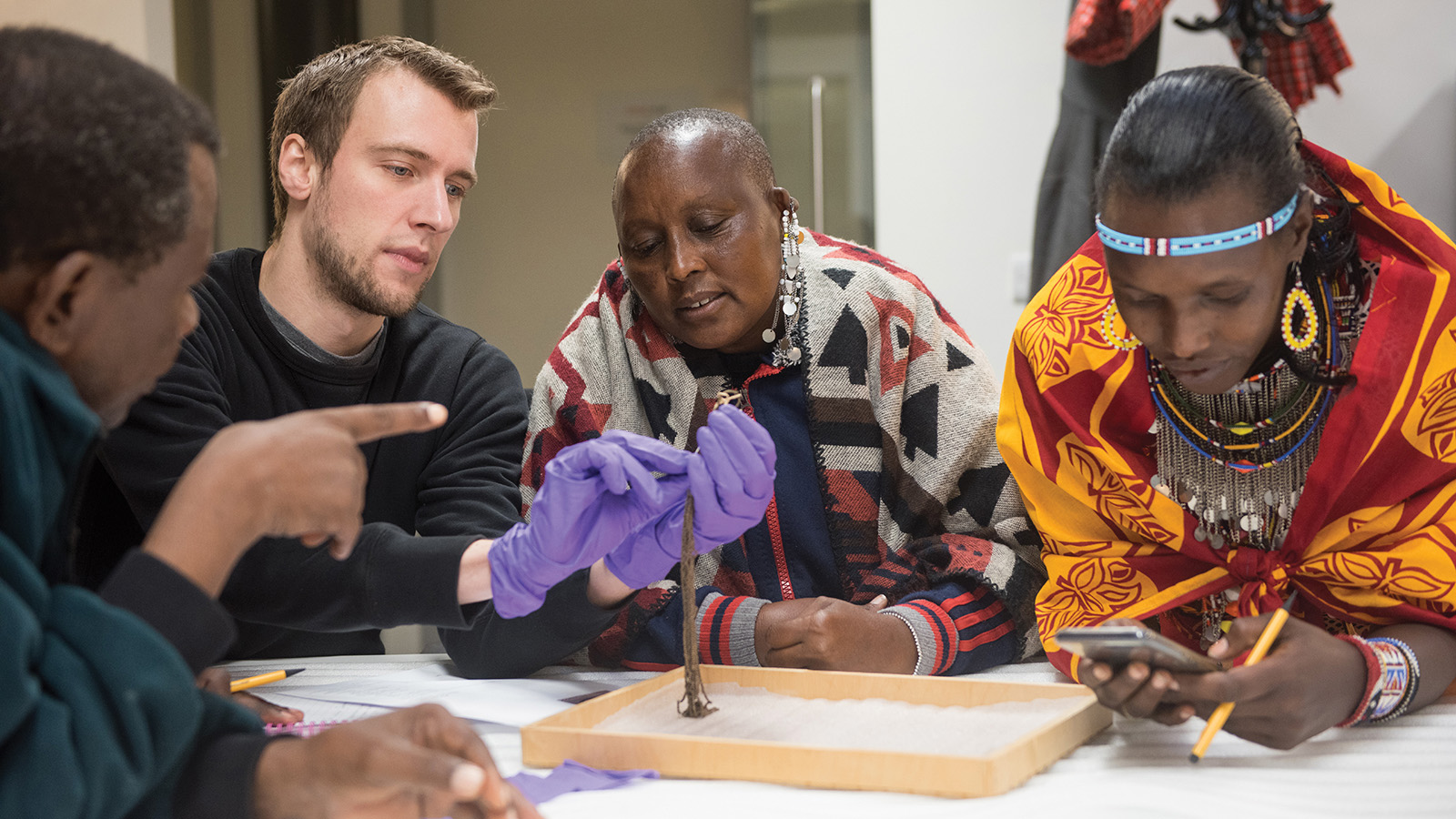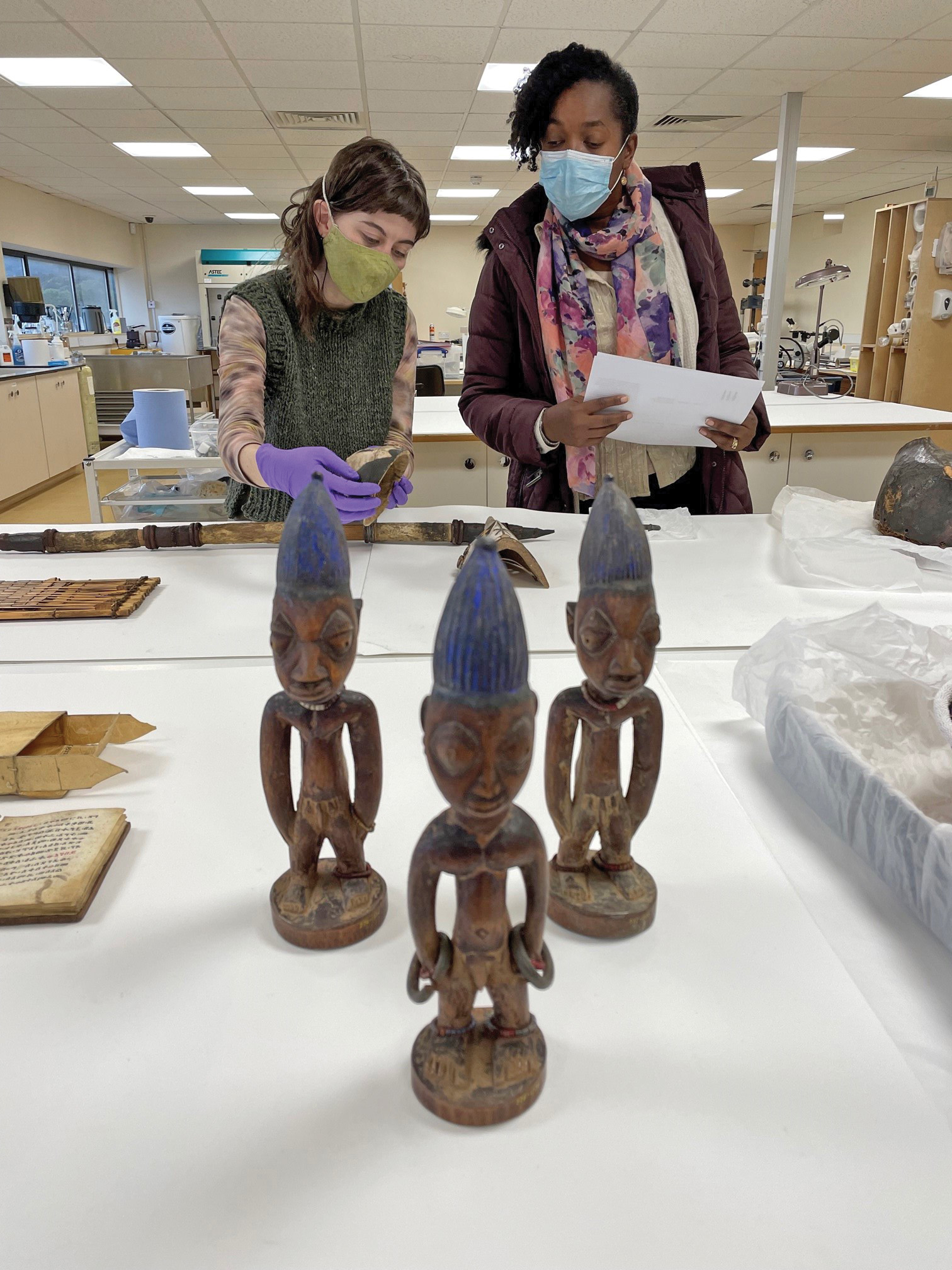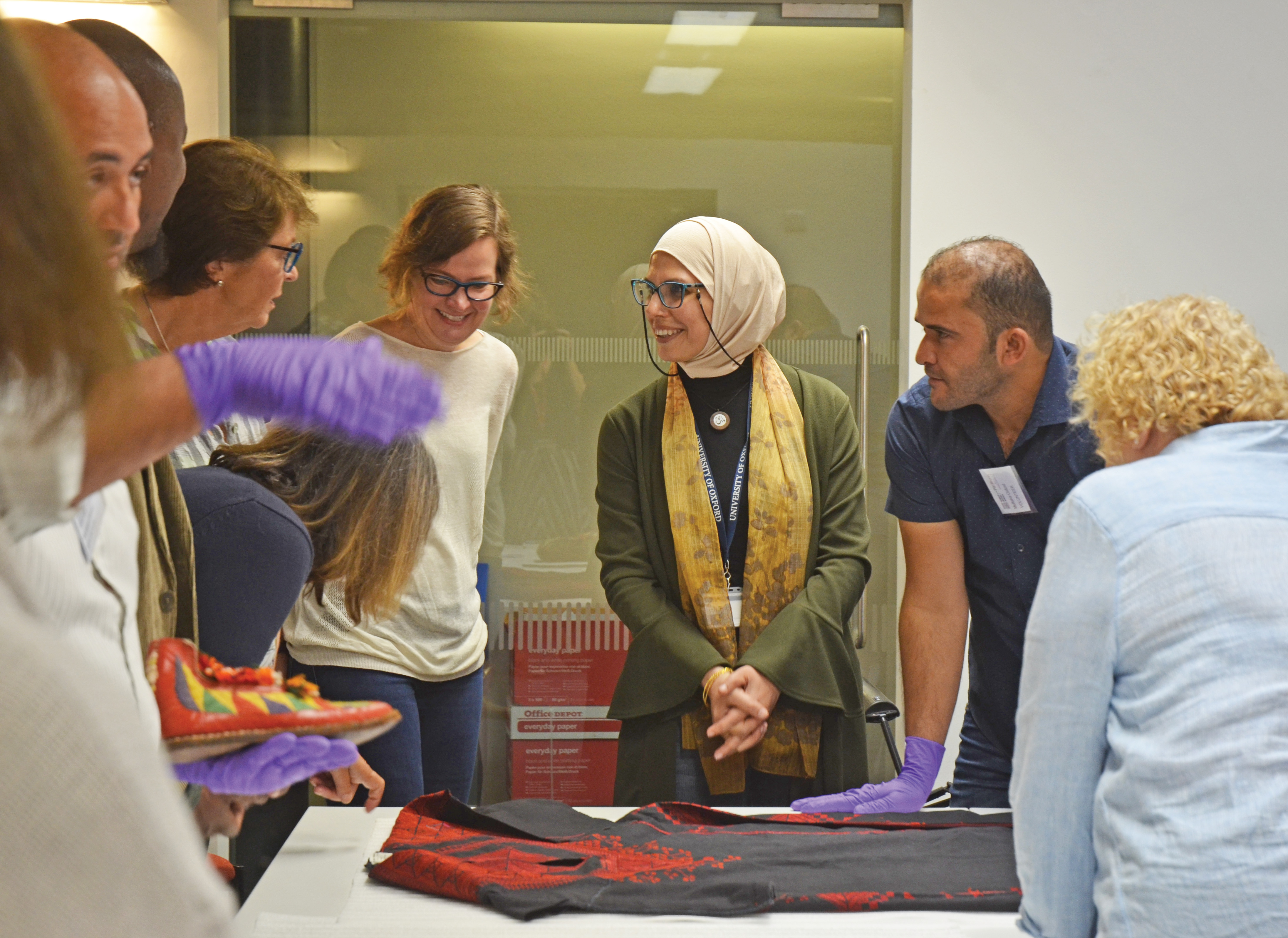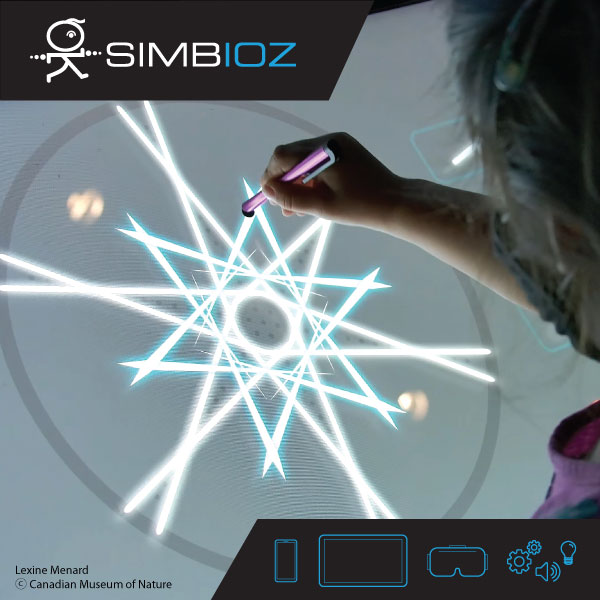
Maasai representatives and Pitt Rivers Museum staff working together on the care of sacred Maasai objects. © Pitt Rivers Museum, University of Oxford
Decolonizing Museums Project
Q+A with Antonia Canal, Policy and Campaigns Officer at Museums Association (UK)
The Museums Association (MA) of the United Kingdom — the oldest museum association in the world, established in 1889 — has undertaken decolonizing initiatives that aim to empower more people to take action and lead change as museums address the legacy of British colonialism.
Recognizing the growing interest in decolonizing museums, but a lack of confidence in how to put this into practice, the MA set out to create guidance on Supporting Decolonisation in Museums.
The recently launched guidance covers all areas of practice, with sections on collaboration, collections, workforce and more. It is intended to help people from across the museum sector to engage with decolonizing practice, regardless of size or type of institution.
CMA staff met with the policy and campaigns officer at the Museums Association UK, Antonia Canal, to discuss the impetus behind the project, its development process and connections to museum-led reconciliation and decolonizing initiatives in Canada and worldwide.
For those unfamiliar with the project, can you please describe the initiative?
In November 2021, we launched Supporting Decolonisation in Museums. Produced by our Decolonisation Guidance Working Group, with support from our Ethics Committee and a range of critical friends, this new guidance aims to support more people to take action on decolonizing.
Supporting Decolonisation in Museums covers all areas of practice, with sections on collaboration, collections, workforce and more. The guidance offers prompts for thinking, discussion and action, recognizing that there is no single “right” way to decolonize museums.
Many museums across the UK are part of the legacy of British colonialism. Supporting Decolonisation in Museums offers the opportunity to take steps toward long-term change.

Members of the Sudanese Community in Sussex at the Royal Engineers Museum in September 2021, as part of the Making African Connections project.
Can you fill us in on some of the background work and historical context of the Museums Association that led to this initiative?
Work to decolonize museums has been championed by people who work in and with museums for a long time. I think it’s important to acknowledge that this work is not new and has often been led by communities on the ground.
For us at the Museums Association, decolonizing became a policy priority following the publication of our 2019 Empowering Collections report. This found that there was a growing interest in decolonizing museums, but a lack of confidence in how to put this concept into practice.
In response to this recommendation, the Decolonisation Guidance Working Group was set up, as a subgroup of our Ethics Committee, to produce this guidance so that more people can take action on decolonizing.
Who were some of the major collaborators and what was your role in this undertaking?
Supporting Decolonisation in Museums was produced by our Decolonisation Guidance Working Group, which included a range of professionals working in the museum sector and beyond. The group was chaired by Rachael Minott.
We also had support from our Ethics Committee, external facilitators and a range of critical friends, you can find all their details on our website.
My role was to support the Working Group and ensure the guidance represented the rich discussions and collaborative working we had undertaken together over the past two years.
Can you tell us about how the project was developed? What were some of the major activities or milestones that brought it to fruition?
The Working Group was established in 2019, as part of the recommendations from our Empowering Collections report, which found there was a growing interest in decolonizing museums, but a lack of confidence in how to put this concept into practice.

Raquel McKee from the African Caribbean Support Organisation Northern Ireland (ACSONI) advising on African material in the national collection, with Bethany Skuce, National Museums NI Object Co
The Working Group initially collaborated through quarterly meetings, using these early discussions to map out ideas and ambitions for the guidance. A survey was conducted early on, to get a range of people’s perspectives on decolonizing museums. You can find quotes from survey respondents throughout the guidance.
Our Working Group later took part in a series of workshops to further develop the guidance content. These sessions were led by Working Group members as well as some external facilitators.
In the final months of creating the guidance, the Working Group met monthly, with many members also taking part in additional collaborative drafting sessions to finalize the work.
We at the Museums Association are incredibly grateful to the group for all of the time, energy and expertise they offered.
What are you most proud of regarding the project, either in its development or delivery?
The Working Group had a really clear vision of what the guidance could be and were incredibly committed to achieving this. I am so proud of and grateful for the Working Group’s dedication to this work. Our Chair, Rachael Minott, provided incredible leadership and care, which really sustained all of our work together.
Although this work was conducted in the UK and largely speaks to the UK context, can you speak to how this guidance document can support decolonization work that is being conducted here in Canada, North America and globally?
I think many of the ideas shared will be relevant to museums across the world. As our approach has been to offer prompts for thinking, discussion and action, there’s lots of scope to make these ideas relevant and meaningful to your local context.
The guidance recognizes there is no single “right” way to decolonize museums; each institution has the opportunity to identify strategies that work for its communities, collections and those who work in and with the museum. I think this is true wherever you are in the world.

Multaka Collections Officer Rana Ibrahim and project volunteers welcome visitors to the Pitt Rivers Museum research space. © Pitt Rivers Museum, University of Oxford
What advice would you give to smaller institutions looking to begin this decolonization work, but may not know where to start?
As stated in Supporting Decolonisation in Museums in the section “Beginning the Journey,” “Decolonizing practice is a worthwhile journey for individuals and institutions, even if it feels that a decolonized museum is a distant destination. Whether this work is being done individually, or with institutional backing, anyone can take decolonizing practice forward.”
My advice would be to take steps where you can and connect with those, inside and outside the museum, who can support your journey in this work. And be sure to make use of this guidance document — there’s lots of advice for people just starting out, and I think the decolonizing principles and the decolonizing actions in museums are great places to start.
As you may know, the Canadian Museums Association is nearing the completion of undertaking engagement and analysis of reconciliation and decolonization initiatives, specifically as it relates to collaboration with Indigenous peoples on a national review of museum policies and best practices to determine the level of compliance with the United Nations Declaration on the Rights of Indigenous Peoples and to make recommendations. Any insights to share with us as we prepare to share this information within our own national sector?
From my experience collaborating with our Working Group, I think it’s useful to be clear on the principles that guide initiatives like these, emphasising that this work is rooted in ethics and values. The decolonizing principles have been a really important resource to share with people — they offer direction and inspiration, but also provide a place to hold each other to account as we strive to create change in the long run.
Our approach in Supporting Decolonisation in Museums has also been to provide prompts for reflection and action that can be taken and made meaningful in different contexts. We also aimed to be relevant to everyone who works in and with museums, at all levels. I think tailoring recommendations so that they can be championed by all the people who need to be part of creating change will be important. M
